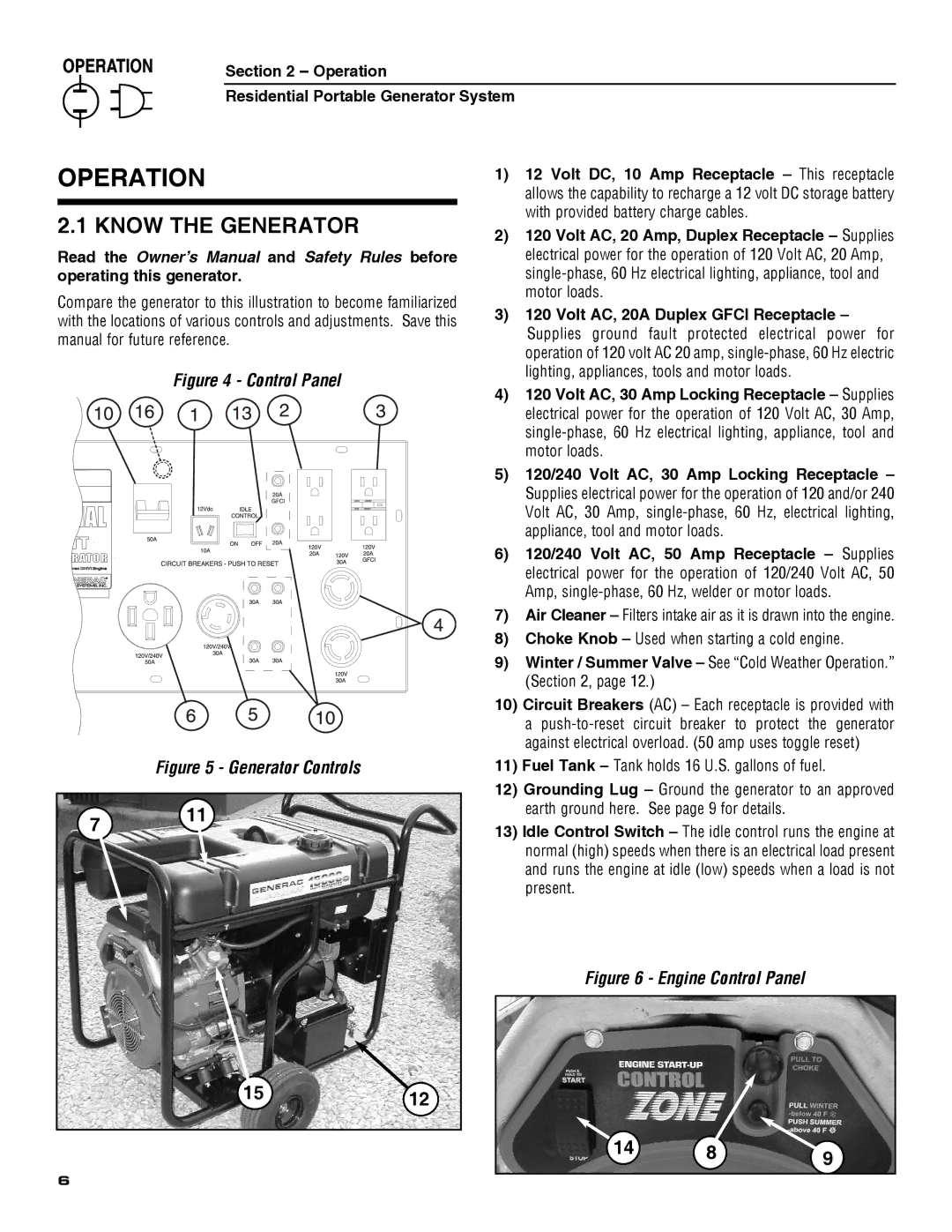
Section 2 – Operation
Residential Portable Generator System
OPERATION
2.1 KNOW THE GENERATOR
Read the Owner’s Manual and Safety Rules before operating this generator.
Compare the generator to this illustration to become familiarized with the locations of various controls and adjustments. Save this manual for future reference.
Figure 4 - Control Panel
Figure 5 - Generator Controls
7 11
1512
6
1)12 Volt DC, 10 Amp Receptacle – This receptacle allows the capability to recharge a 12 volt DC storage battery with provided battery charge cables.
2)120 Volt AC, 20 Amp, Duplex Receptacle – Supplies electrical power for the operation of 120 Volt AC, 20 Amp,
3)120 Volt AC, 20A Duplex GFCI Receptacle –
Supplies ground fault protected electrical power for operation of 120 volt AC 20 amp,
4)120 Volt AC, 30 Amp Locking Receptacle – Supplies electrical power for the operation of 120 Volt AC, 30 Amp,
5)120/240 Volt AC, 30 Amp Locking Receptacle –
Supplies electrical power for the operation of 120 and/or 240 Volt AC, 30 Amp,
6)120/240 Volt AC, 50 Amp Receptacle – Supplies electrical power for the operation of 120/240 Volt AC, 50 Amp,
7)Air Cleaner – Filters intake air as it is drawn into the engine.
8)Choke Knob – Used when starting a cold engine.
9)Winter / Summer Valve – See “Cold Weather Operation.” (Section 2, page 12.)
10)Circuit Breakers (AC) – Each receptacle is provided with a
11)Fuel Tank – Tank holds 16 U.S. gallons of fuel.
12)Grounding Lug – Ground the generator to an approved earth ground here. See page 9 for details.
13)Idle Control Switch – The idle control runs the engine at normal (high) speeds when there is an electrical load present and runs the engine at idle (low) speeds when a load is not present.
Figure 6 - Engine Control Panel
14 | 8 | 9 |
